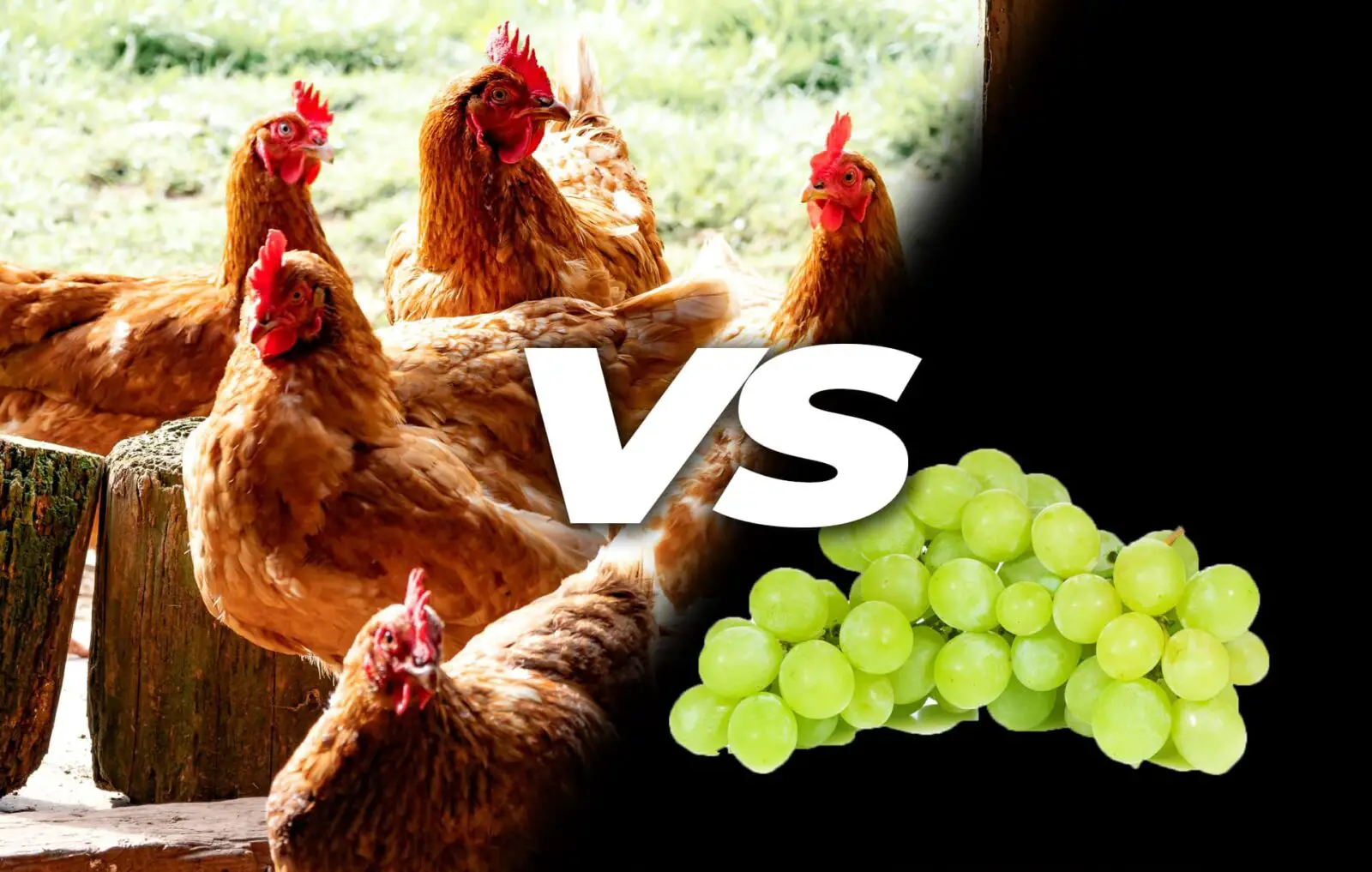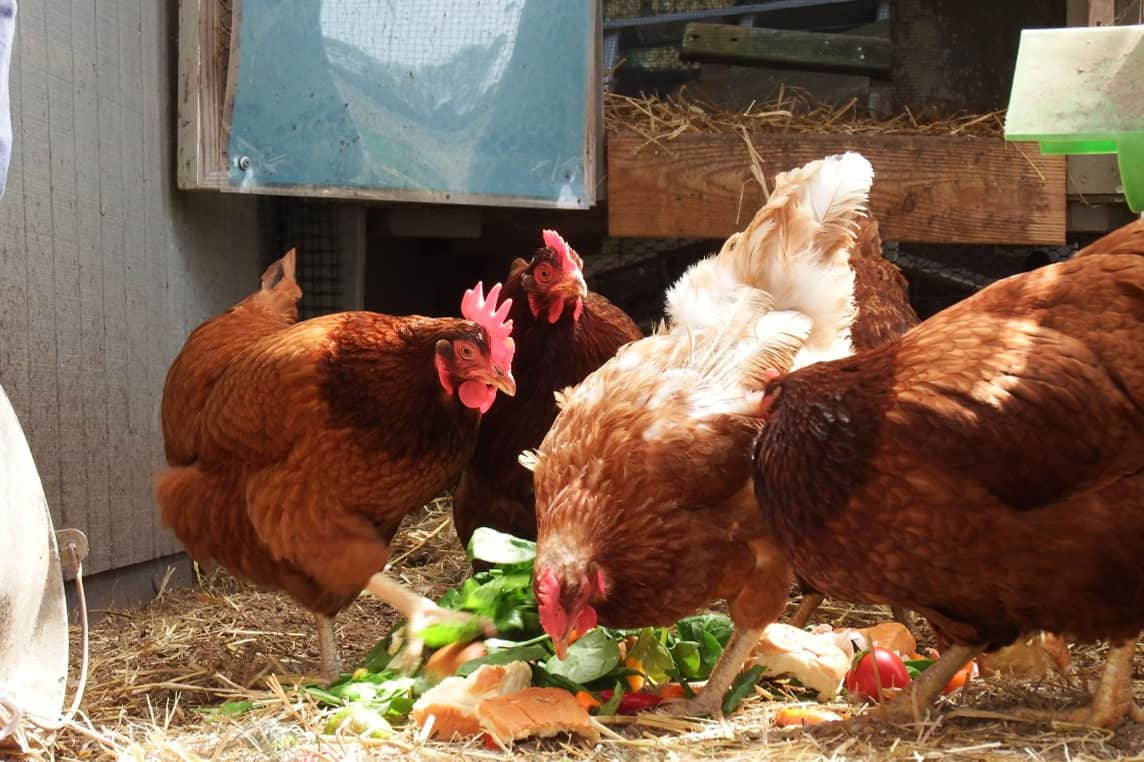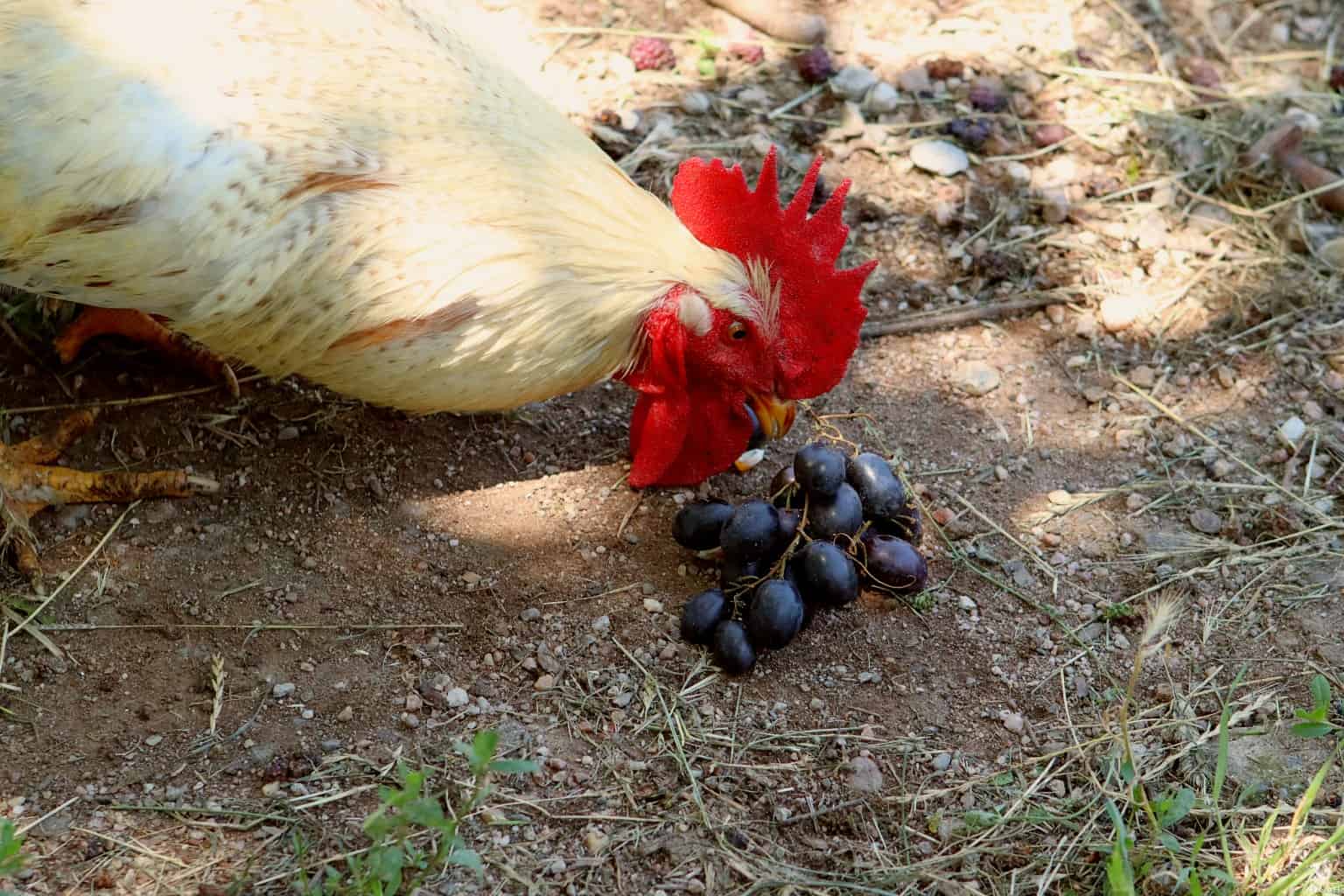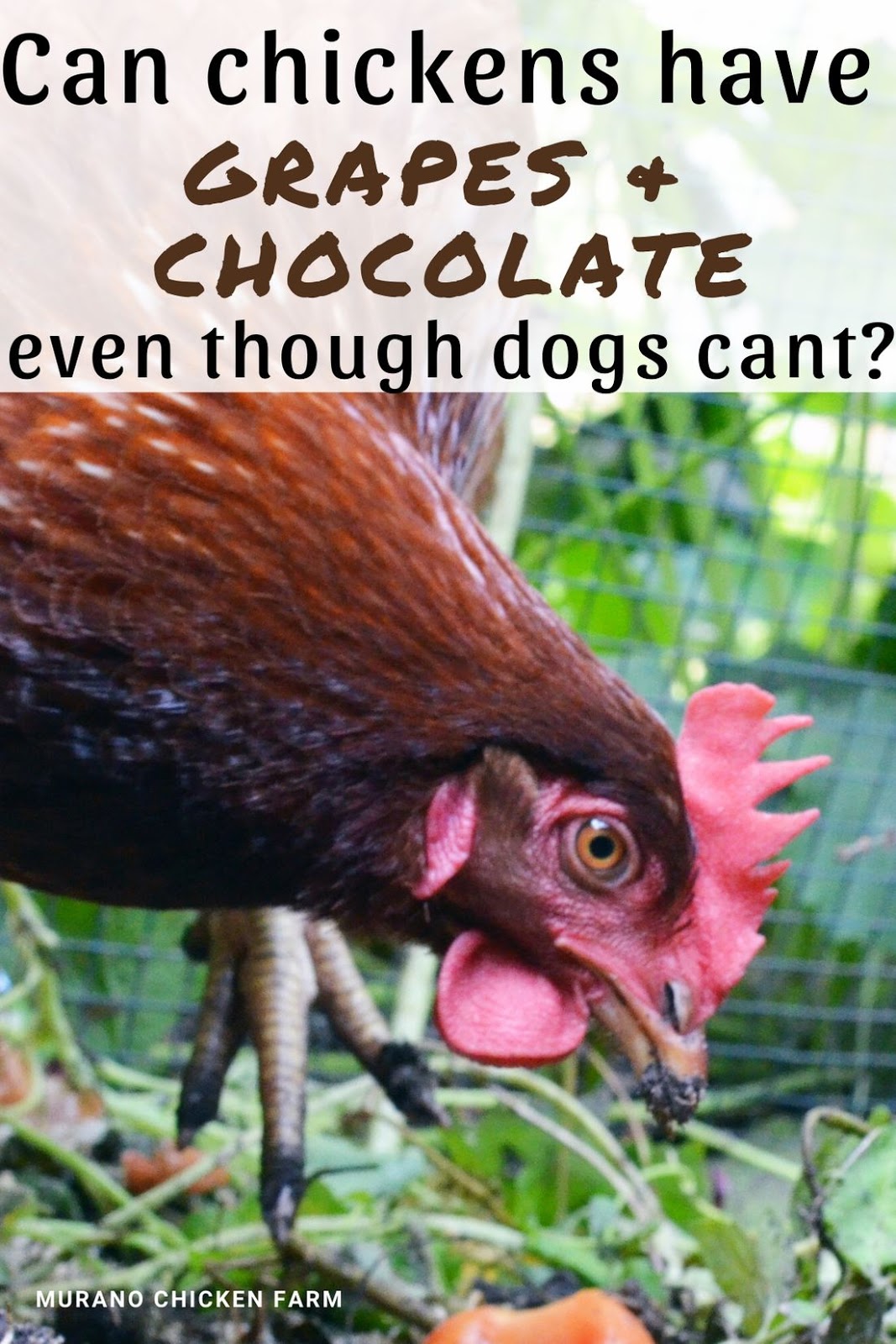Welcome to the comprehensive guide to chicken husbandry with chickens grapes. This guide is designed to help you understand the basics of chicken husbandry, from selecting the right breed of chicken to providing the best care for your chickens. We’ll cover everything from housing and nutrition to health care and general management. We’ll also provide information on how to successfully raise chickens grapes, a unique breed of chicken that produces sweet, juicy grapes. With this guide, you’ll gain the knowledge and skills needed to raise a healthy, happy flock of chickens grapes.
Can Chickens Eat Grapes?

Grapes are a delicious, nutritious snack for humans, but can chickens have them too? The answer is yes, chickens can eat grapes, and they offer numerous health benefits.
Nutritional Benefits of Grapes for Chickens
Grapes are packed with essential vitamins, minerals, and antioxidants that can help keep chickens healthy. They are a good source of vitamin C, which helps to boost the immune system and ward off disease. Grapes also contain vitamin A, which helps to improve vision, as well as folate, which is important for cellular health. In addition, grapes contain potassium, which helps regulate electrolyte balance in the body and can promote strong muscle growth.
Are Grapes Safe for Chickens?
Yes, grapes are safe for chickens to eat. However, it is important to feed them in moderation, as grapes are quite high in sugar and can cause digestive problems if eaten in large quantities. It is also important to make sure that the grapes are fresh, as moldy grapes can make chickens sick.
Overall, grapes can be a healthy and delicious treat for chickens and offer numerous health benefits. However, it is important to feed them in moderation and to ensure that the grapes are fresh.
What Should I Feed Chickens Grapes?

How to Prepare Grapes for Chickens
Grapes are a great source of nutrition for chickens and can be an important part of their diet. The best way to prepare grapes for chickens is to thoroughly wash and remove the stems before offering them. Once the grapes are washed, they should be cut into small pieces so they are easy for the chickens to eat.
Are Grapes Good for Chickens?
Yes, grapes are a nutritious snack for chickens and can provide a variety of benefits. Grapes are high in antioxidants, vitamins, and minerals, which can help to keep chickens healthy and strong. Grapes can also be a great source of fiber and can help to keep chickens’ digestive systems functioning properly. As long as chickens are fed grapes in moderation, they can be a great addition to their diet. So, the answer is yes, chickens can eat grapes.
Can Baby Chicks Eat Grapes?

Grapes are a great source of nutrition and can be a healthy snack for both baby chicks and adult chickens. However, it is important to understand the proper way to feed grapes to baby chicks and the potential health risks that can come with feeding grapes.
Can Baby Chicks Eat Grapes Whole?
Grapes should never be given to baby chicks whole. Grapes are too large and can be a choking hazard for small chicks. In addition, the acid in the grapes can cause an upset stomach. Instead, grapes should be cut into small pieces and given to baby chicks in moderation.
When feeding grapes to adult chickens, it is important to ensure that the grapes are washed and free of pesticides. Chickens are particularly sensitive to the chemicals found in pesticides, and the ingestion of pesticides can lead to serious health problems.
It is also important to limit the amount of grapes that chickens consume. Grapes are high in sugar and, while they may be a tasty treat, they should not be the primary source of nutrition for chickens.
Overall, grapes are safe for chickens as long as they are given in moderation and free of pesticides. By following these guidelines, chickens can enjoy the occasional grape as a healthy snack.
Can Chickens Eat Seeded Grapes?

Yes, chickens can eat seeded grapes. Grapes are actually a great source of nutrition for chickens, providing them with essential vitamins and minerals. However, it is important to remember that chickens should never eat grapes with the seeds still in them. Seeds can be toxic to chickens and cause them to become ill.
Are Grapes Bad for Chickens?
No, grapes are not bad for chickens in general. However, as mentioned above, chickens should not eat grapes with the seeds still in them. The seeds contain toxins which can be harmful to chickens if consumed. Additionally, grapes should only be given to chickens in moderation, as they are a high sugar treat.
Can Chickens Eat Green Grapes?
Chickens can eat green grapes, though they should be chopped up into smaller pieces as the skin of green grapes is quite tough. Green grapes are a great source of vitamins, minerals and antioxidants, so they are a nutritious snack for chickens. It’s important to remember that chickens should only be given small amounts of grapes, as too much can lead to digestive issues. Grapes should also be washed thoroughly before feeding them to chickens, to remove any traces of pesticides or other chemicals.
Green grapes are also a great source of water for chickens. It is important to provide chickens with plenty of clean drinking water, but grapes can help to keep them hydrated as well. Grapes are also a good source of dietary fiber, which helps to keep chickens regular and aids digestion.
In conclusion, chickens can safely eat green grapes in moderation. Make sure to chop them up into small pieces and wash them thoroughly before feeding them to your chickens. Grapes can provide chickens with essential vitamins, minerals, antioxidants, and dietary fiber, as well as helping them to stay hydrated.
Do Chickens Like Grapes?

Grapes are a popular snack for chickens, and they often show a strong preference for them. Chickens are omnivores, meaning they can eat a variety of foods including fruits, vegetables, grains, and seeds. Grapes are a high-energy snack for chickens and provide them with healthy carbohydrates, vitamins, and minerals.
Are Grapes Good for Chickens?
Yes, grapes are good for chickens in moderation. Grapes are packed with antioxidants, vitamins, and minerals which can help support a healthy immune system. Grapes also contain phytonutrients that can help reduce inflammation, improve heart health, and support the digestive system. All these benefits make grapes a great snack for chickens.
- Grapes are a high-energy food that provide chickens with healthy carbohydrates, vitamins, and minerals.
- Grapes can help support a healthy immune system and reduce inflammation.
- Grapes can help improve heart health and support the digestive system.
- Chickens tend to show a strong preference for grapes over other fruits and vegetables.
- It is important to feed chickens grapes in moderation to prevent overeating.
In conclusion, chickens love grapes and benefit from eating them in moderation. Grapes provide chickens with important vitamins and minerals as well as antioxidants and phytonutrients. Feeding chickens grapes is an excellent way to provide them with a healthy and tasty snack.
Can You Feed Grapes to Chickens?
Chickens can benefit from eating grapes, as they are a good source of essential minerals and vitamins. Grapes provide energy, calcium, and iron in a form that chickens can easily digest. Grapes also contain antioxidants, which help protect chickens from diseases and improve their overall health.
It is important to note that chickens should only eat small amounts of grapes, as too much can lead to digestive issues. Grapes have a high sugar content, and feeding too many can cause problems such as diarrhea and abdominal discomfort.
When feeding grapes to chickens, it is important to choose fresh, ripe grapes. Unripe grapes contain a compound called tannin, which can cause digestive issues in chickens. Grapes should be washed thoroughly to remove any dirt, bacteria, and pesticides.
- Chickens can benefit from eating grapes.
- Grapes provide energy, calcium, and iron in a form that chickens can easily digest.
- Grapes also contain antioxidants, which help protect chickens from diseases and improve their overall health.
- Chickens should only eat small amounts of grapes, as too much can lead to digestive issues.
- When feeding grapes to chickens, it is important to choose fresh, ripe grapes.
- Grapes should be washed thoroughly to remove any dirt, bacteria, and pesticides.
In conclusion, did chickens can eat grapes, but it is important to do so in moderation and to choose ripe, fresh grapes. Feeding grapes to chickens can provide them with essential nutrients, but too many can lead to digestive issues.
Frequently Asked Questions
What kind of environment do chickens require for optimal care?
- Adequate Space: Chickens need at least 2–3 square feet of space per bird, with more space for larger breeds and less for smaller breeds. Space should also be provided for roosting and dust bathing.
- Food and Water: Chickens need a steady supply of food and clean water. The food should be free of chemicals and provide a balanced diet of proteins, carbohydrates, vitamins, and minerals.
- Heating and Cooling: In cold climates, chickens need to be protected from the elements. This can be done by providing a coop or other shelter with adequate ventilation. In hot climates, chickens need shade and access to cool water.
- Lighting: Chickens need at least 14 hours of light each day, preferably natural sunlight. Artificial lighting can also be used in winter months.
- Predators: Predators such as foxes, raccoons, and hawks are a threat to chicken health. Keep chickens in a secure coop and fencing to protect them from predators.
What are the Health Benefits of Chickens Eating Grapes?
1. Increased Antioxidant Intake: Grapes are high in antioxidants, which can help protect chickens from diseases and illnesses.
2. Improved Digestive Health: The fiber in grapes aids in digestion and helps chickens absorb more nutrients from their food.
3. Increased Immunity: The high levels of vitamin C in grapes can help boost a chicken’s immune system and help it fight off infection.
4. Reduced Stress: Grapes also contain tryptophan, which can help reduce stress and anxiety in chickens.
5. Improved Reproductive Health: The vitamins and minerals in grapes can help improve fertility and egg production in chickens.
What Kind of Diet Do Chickens Need to Stay Healthy?
Chickens should be fed a balanced diet that is high in protein and includes a variety of grains and other foods. A good diet should include a mix of grains, fresh vegetables, and greens, fresh or dried fruit, and a source of calcium such as crushed oyster shells or eggshells. Depending on the age and breed of the chickens, their dietary needs will vary. It is important to provide chickens with a variety of feed to ensure that they get the nutrients they need to stay healthy.
How Often Should Chickens be Given Access to Fresh Water?
- Daily: Chickens should be given access to fresh, clean water every day. This is particularly important during the hot summer months, when chickens become dehydrated more quickly due to the heat.
- Frequently: Chickens should have their water replaced or refilled as necessary. This is especially important in cold weather, when the water can freeze over and prevent the chickens from drinking.
- Seasonally: During the winter months, chickens should be given warm water to prevent them from becoming chilled. During the summer months, the water should be kept cool and fresh, as chickens can quickly overheat if their water is too warm.
It is also important to check the water regularly for any signs of contamination. If the water seems cloudy or has any unusual smell, it should be replaced with fresh water as soon as possible.
What Supplies Are Needed for Proper Chicken Husbandry?
To ensure the health and wellbeing of chickens, there are certain supplies that are essential for proper husbandry. These include: a secure coop or housing; feeders; waterers; bedding; heating/cooling devices; pest control products; and nutritional supplements. Coops should provide protection from predators and the elements, while feeders and waterers should be regularly cleaned and refilled. Bedding should be changed and cleaned regularly, and heating/cooling devices should be adjusted depending on the season. Pest control products are necessary to keep chickens safe from parasites and disease, while nutritional supplements can ensure that chickens receive the proper nutrients.
Conclusion
The proper care and management of chickens is essential for their health and well-being. A comprehensive understanding of their needs and requirements can help ensure their longevity and productivity. With proper nutrition, housing, and husbandry, chickens can be a great addition to any backyard or farm. With the right knowledge, chickens can provide eggs, meat, and companionship for many years.
